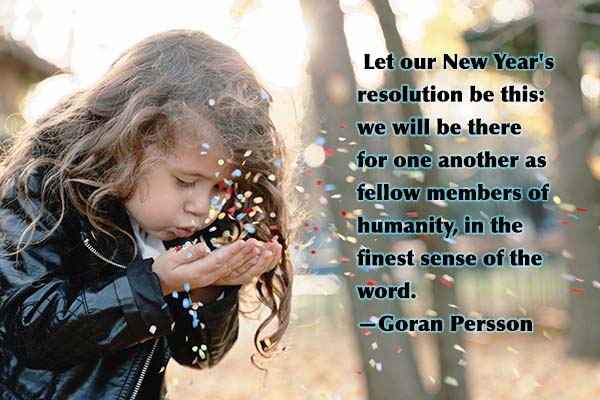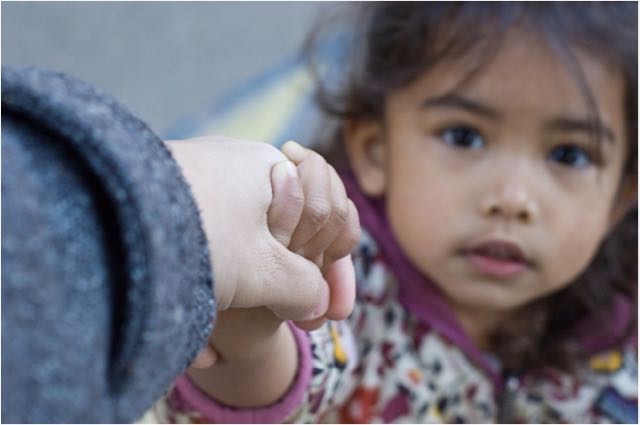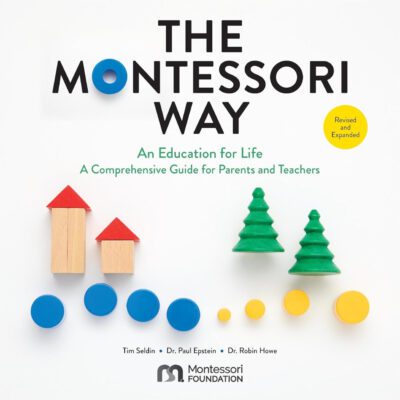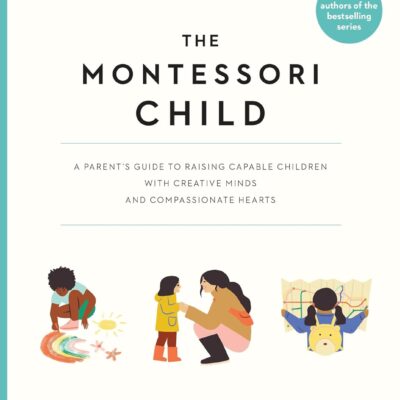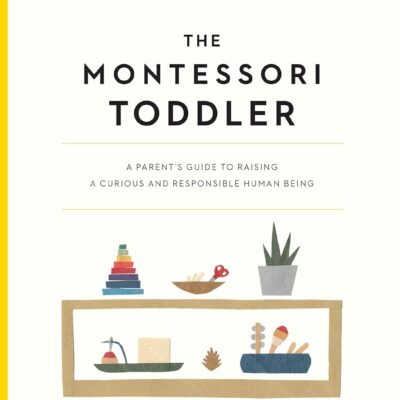
A Developmental Perspective
by Andrew Faulstich
Many adolescent parents find themselves wondering what happened to their once talkative and engaging child, who has suddenly become more distant and peer-focused in adolescence. This transformation is both natural and necessary, representing what Montessori described as a social and physical rebirth. This article explores why this shift occurs and provides practical guidance for parents on how to evolve their relationship with their adolescent positively. By learning to listen to their adolescents truly, parents can maintain a strong connection even as the nature of their relationship changes. The key is recognizing that, while your adolescents may seem to be pulling away, they need your support and acceptance more than ever as they navigate this critical period of identity formation.
Every year I have multiple caregivers ask me the same question: Where has my child gone?
The arc of these stories is strikingly similar. When their children were elementary-aged, they were talkative, curious about the world, and enjoyed being with their caregivers. At the end of the day, they ran out to the car and told their caregivers story after story about their day.
Then, in what seemed like an abrupt shift at age twelve, the conversation about the school day started and ended with one word: fine.
The elementary child is gone; replaced by an adolescent, who cares more about peers than school and seems like an entirely new person.
To parents, this abrupt shift in the caregiver-child relationship can be startling. However, it does not mean that your relationship with your adolescent is over. Rather, it must take a new form. To achieve this new relationship, caregivers must learn to listen to their adolescent in a new way. To listen to our adolescents, we must understand the massive developmental shifts that occur for them during this unique period in their lives.
Why is there such a sudden shift in personality when young people become adolescents?
Montessori described the adolescent plane, from twelve to eighteen years old, as a social and physical rebirth. The young person ceases to become a child, shedding their childhood body and identity, and must grow into their new adult bodies and identities.
The obvious changes are the physical ones: puberty brings new changes to the adolescent nearly every day. As they grow into their adult body, they don’t know what changes will occur next.
While we cannot see the social rebirth on the outside, the sudden change in relationship with parents is a manifestation of that inner change.
Adolescents are seeking social and economic independence as they begin to see their place in the adult world. They are asking three key questions about their identities: Who am I? What am I good at? What am I good for? In that search, they begin to look for role models outside the home. Whereas the elementary child looked up to their parents as “superheroes,” adolescents develop a critical lens to the adults around them as they scrutinize their actions to understand how they want to act as they become adults.
What is most surprising for adults is that early adolescence is a period with a decreased academic capacity. However, this is not because students literally lose the capacity to learn new things! It is because their focus is on constructing their new identities in the context of the social worlds around them. They need positive experiences in their peer group to practice the “selves” they will become, and the most potent of these experiences are typically non-academic. Adolescents are in a period of experimentation, seeking to understand the ways they fit in the world, which is why their relationship with their parents must change. They are transforming into a fundamentally new person and will need new ways to relate to their parents in the context of their new identities.
How to Listen and Observe Your Adolescent
Preparing Yourself to Fully Listen: Montessori wrote that if we provide a developmentally appropriate environment for adolescents, if we learn to truly listen to their needs and support the self-construction of their personalities, then noble characteristics would emerge. I have seen in my own experience with adolescents that they can be the most kind, thoughtful, introspective, and funny people I have ever met. Yet, we cannot “teach” them to be this way; we must prepare an environment for these qualities to emerge, and this environment begins at home.
We must remember that adolescents are looking to you, as caregivers, for models of how to act in the world. Adolescents begin to realize that many adults say they hold certain ethical convictions, and then they proceed to act in contrast to those values. Adolescents are particularly sensitive and critical of such hypocrisy. Knowing that our adolescents are always watching, we must examine ourselves as adults and caregivers: What are we modeling? When we interact with their peers, teachers, other family, and friends, are we ourselves being model citizens? Are we acting in a way that invites authentic and safe conversation from our adolescents?
If your adolescent is pulling away from family life, that means they require more meaningful citizenship in the home.
Connecting
Your
Adolescent to Adult-Like Responsi-
bility: To truly honor your adolescent, you must recognize that the process of development is messy and that they will make mistakes, but that doesn’t mean they’re not ready for meaningful, adult-like work. In fact, it is precisely through the process of trial and error that they form their personalities.
We must learn to listen to more than just their words, but also their actions. We know that adolescents are seeking to form their new identities in the context of the social worlds they inhabit, including the social world of your immediate family. If your adolescent is pulling away from family life, that means they require more meaningful citizenship in the home. What are real (not contrived or childish) responsibilities that your adolescent can take on which will help them toward independence and a meaningful contribution to family life? Offering such opportunities, as invitations, rather than commands, will allow your adolescent to find meaning in their family role and have a new means of relating to you.
Supporting your adolescent in finding a job is also a key developmental experience toward economic independence. One of my former students struggled academically due to learning differences she had. This initially led to a lack of confidence broadly, as she felt unable to keep up with her peers. That same year, she became old enough to be a lifeguard, and it was a key experience which changed her entire sense of self. For the first time, not only was her work important, but she was promoted to become an integral part of the pool management team. The confidence she gained through her experiences as a lifeguard transferred to her outlook in school: she was more confident, was more willing to take risks, and demonstrated confidence and poise.
Often, adolescents will not explicitly say that they are feeling uncertain, but we can read their inner feelings from the indirect communication they’re giving us. We can listen to those needs and be the dynamic link to those adult-like responsibilities that give them a new way to relate to us and the world. Central to this is offering choice and voice. We never want to superimpose needs on our adolescents. Rather, we provide options and should engage in conversation with them about what they want and need, recognizing that they are still in the process of discovering that for themselves!
Holding Your Judgment
Developmentally, adolescents are always concerned with what others will think of them. The metaphor is that they feel as though they are always “on stage,” being watched and judged by others. That means that when they muster the courage to have a difficult conversation with you, they are looking very closely at your reaction, for any hint of judgment or dismissal of their experiences. Often, the simplest reaction, such as a raised eyebrow or question (e.g., Is it really that bad?) could trigger your adolescent to think they’re not being fully heard.
Ultimately, what adolescents are looking for is the knowledge that you will continue to love and accept them no matter what happens. That doesn’t mean that you’re not allowed to have your own feelings about what they tell you or what they do. However, how you respond and express those feelings is key.
Difficult conversations are key moments to model care and honesty, and it’s always important to start by expressing care. You might enter the conversation by saying: “I’m so glad that you felt safe to bring this to me, and you know that no matter what happens, I care deeply about you.”
Depending on the topic, you may need to share your discomfort with what they bring up. “I’m feeling concerned because X” or “I am feeling like that might not be in your best interests to do Y. What else do you think could be a solution?” If you need to draw boundaries or set expectations, this is a key time to do so, while always doing so with the lens of care and upholding their independence, within the limits of health and safety.

Know that your new relationship is an ever-evolving journey
Your adolescent is going through new and unexpected changes every day. They are having new feelings and experiences that they could not have expected and don’t yet have the language to describe. Truly listening to your adolescent means that you must accept that as your relationship grows, and it may not be easy.
There will be times when, despite your best efforts to listen, your adolescent doesn’t have the language to tell you what’s going on. This may lead to arguments, discomfort, and frustration, but you should take heart in knowing that if you are willing to stay in it, to work toward your new relationship with your adolescent, no matter how difficult it may be, that it will blossom because of your deep listening and commitment.
Andrew Faulstich writes about radically transforming education through Montessori and learner-centered pedagogy to create a world that is more humane, equitable, and liberatory for all people.

